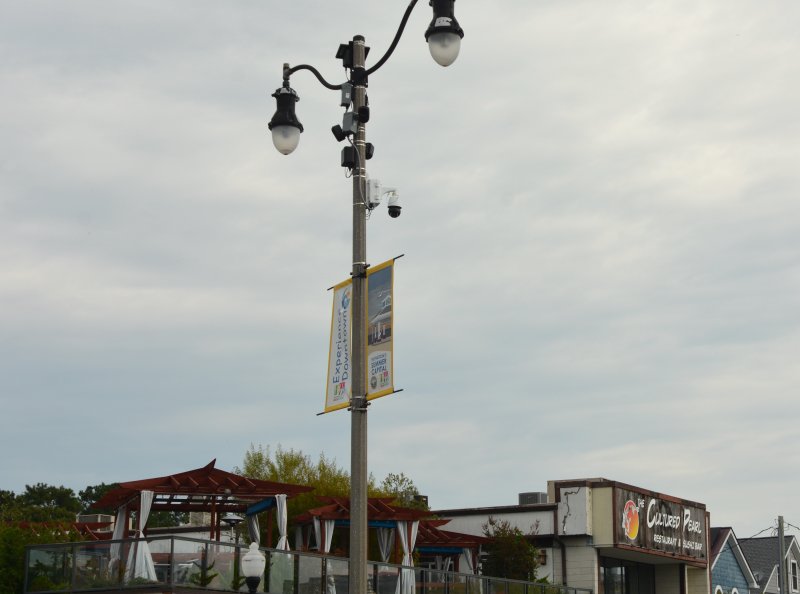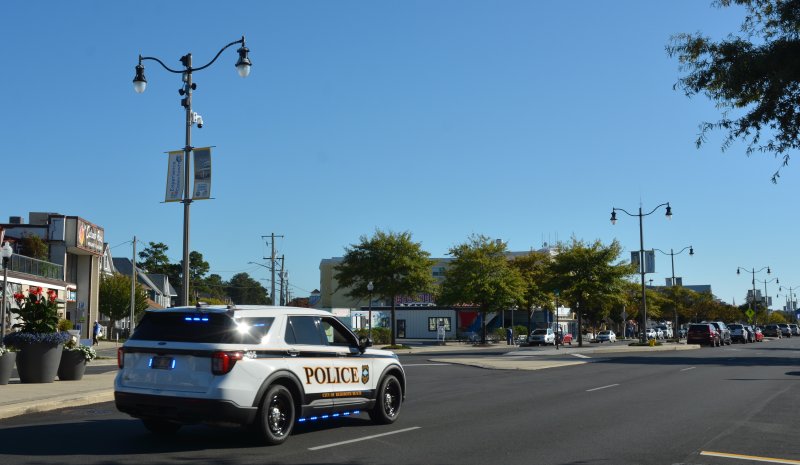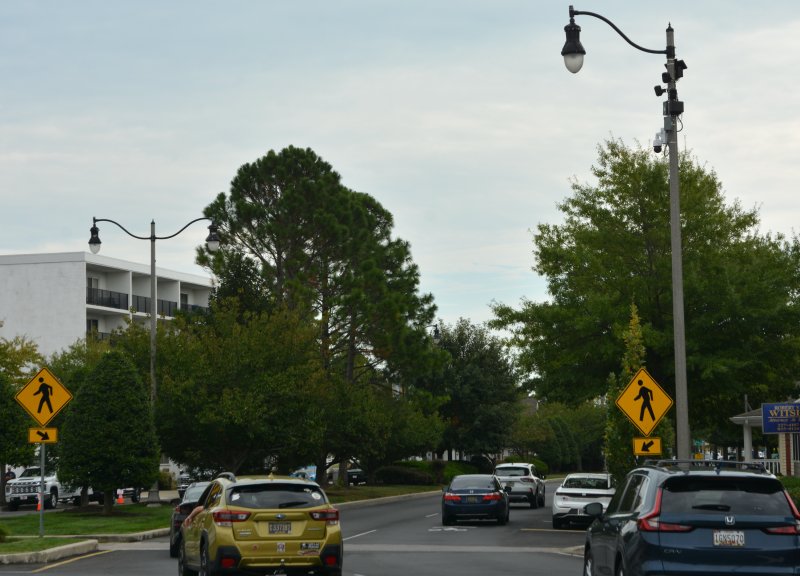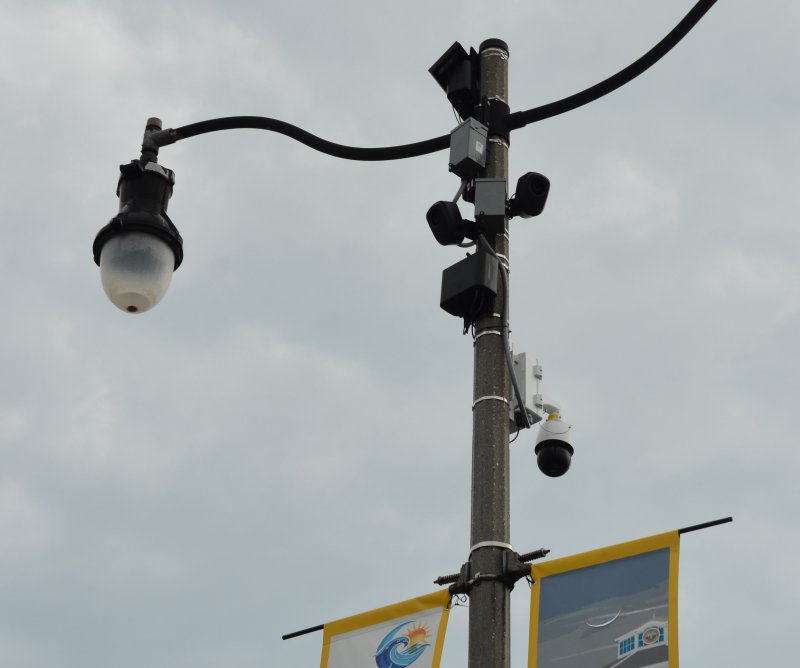Rehoboth expands live camera coverage
In an effort to enhance real-time situational awareness and response capabilities in key public areas, Rehoboth Beach has recently replaced and installed a number of fixed live-feed video cameras.
The additional cameras are part of a broader effort to replace and upgrade many of the city’s existing fixed live-feed video cameras that have been in place along the Boardwalk for several years, said Brooke Thaler, city communications manager. In addition, the city is also expanding its live-feed coverage by installing cameras at several heavily trafficked intersections along Rehoboth Avenue, she said.
“These upgrades are intended to enhance our real-time situational awareness and response capabilities in key public areas,” said Thaler.
The installation of the new cameras on Rehoboth Avenue, near the roundabout and near the intersection with Fourth Street, is the second time recently the city has installed cameras under the umbrella of enhanced community safety. Earlier this year, without any public notice or discussion at the city council level, the city installed four Flock license plate readers on State Road, Bayard Avenue and Rehoboth Avenue. The readers use artificial intelligence-powered technology to identify vehicles based on make, model, color and other details.
The license plate readers are used specifically to detect and record vehicle license plates, and are designed for investigative and public safety purposes, said Thaler. The newly installed live-feed cameras do not have license plate recognition functionality, she said.
In keeping with the city’s commitment to transparency, Rehoboth Beach became the first community in the region to go live with the Flock transparency portal in August, said Thaler. This tool allows the public to understand how data is used and reinforces the city’s pledge to operate openly and responsibly, she said.
The portal provides details on what’s being detected – license plates, vehicles – and what’s not being detected – facial recognition, people, gender, race.
While it’s true that the city now has the transparency portal, it was using the Flock license plate cameras for six months before the portal went live and only after Lewes resident Phil Hagen raised concerns about how the city would use the data it collected.
Thaler said the new live-feed cameras are Flock cameras, but cannot be turned into the license plate readers.
While the cameras are visible, the city does not identify their location or what they’re being used for.
The cameras are there to enhance public safety, said Thaler. The city is transparent about their usage and does not see the need to add the additional signage, she said.
Regarding costs, Thaler said the city budgeted $12,000 for the license plate reading system and an additional $57,000 for the installation and upgrade of the live-feed cameras. The city is actively pursuing grant opportunities to offset the expenses and lessen the financial impact on the city, she said.
The installation of the license plate readers was done in advance of city commissioners implementing an 11 p.m. curfew for minors in May because of a growing concern of unruly behavior. The curfew was spurred by two late-spring incidents – a large midweek beach party that left the area littered with trash and a Friday night crowd fight on Rehoboth Avenue.

Chris Flood has been working for the Cape Gazette since early 2014. He currently covers Rehoboth Beach and Henlopen Acres, but has also covered Dewey Beach and the state government. He covers environmental stories, business stories and random stories on subjects he finds interesting, and he also writes a column called Choppin’ Wood that runs every other week. He’s a graduate of the University of Maine and the Landing School of Boat Building & Design.






















































